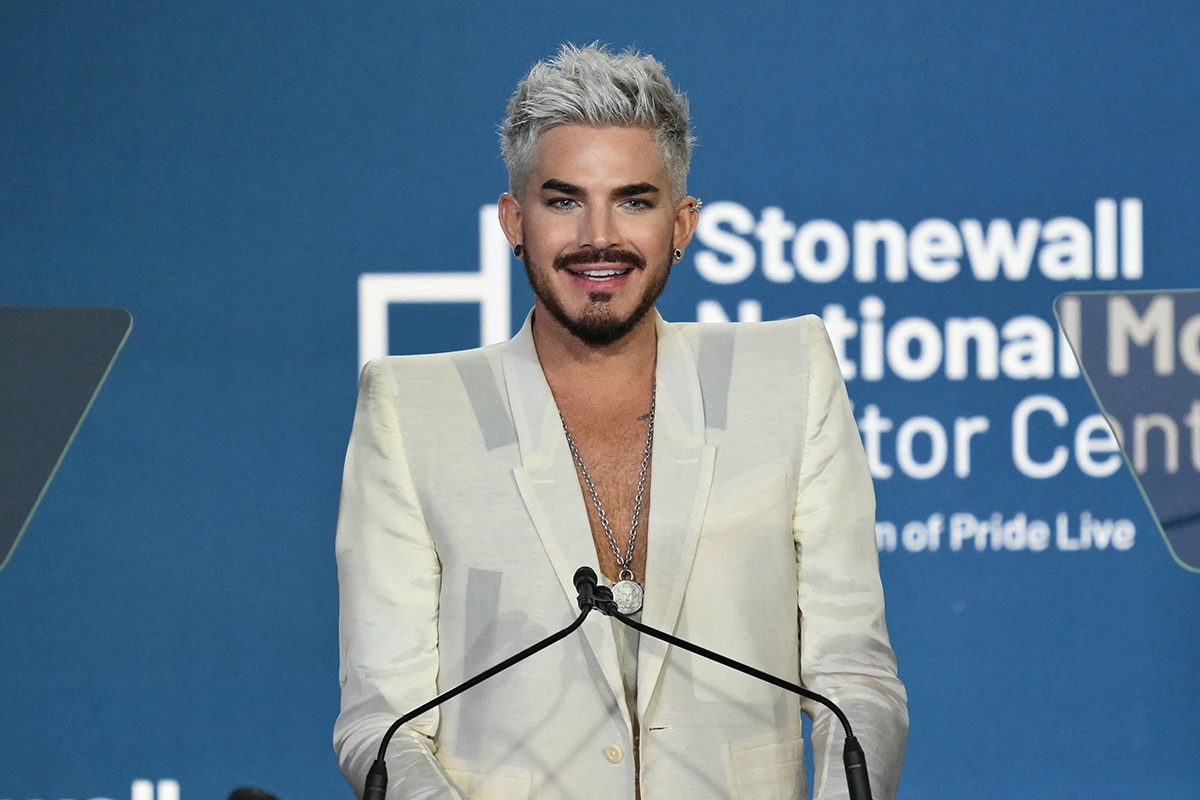It was supposed to be just another night at the theater — velvet curtains, soft lights, and the seductive thrill of Cabaret echoing through the historic venue. But on this particular evening, the audience witnessed something no script could have prepared them for — a real, unscripted stand that sent shockwaves far beyond the stage.
Adam Lambert, known for his electrifying vocals and fearless authenticity, had taken on the role of the Emcee in the latest revival of Cabaret. The character is provocative, flamboyant, and disturbingly prophetic — a mirror to the creeping horrors of 1930s Berlin. The show walks a razor’s edge between satire and tragedy, forcing audiences to confront uncomfortable truths.

But when an antisemitic line — meant to expose hate, not entertain it — drew chuckles from a few scattered seats, Lambert did something extraordinary. He froze.
The lights still burned. The orchestra played on softly. But Lambert, standing center stage in full costume and makeup, broke character. He stared straight at the laughing section and, in a voice filled with both fury and heartbreak, said:
“This is not comedy. Pay attention.”
Gasps rippled through the theater. The laughter died instantly. For several heart-stopping seconds, the room was suspended in silence — the kind of silence that weighs heavily, forcing reflection. Then, Lambert continued, slipping seamlessly back into his role, but the mood had irrevocably shifted. The rest of the show unfolded like a slow burn — raw, haunted, and unforgettable.

Within hours, the moment hit social media. Clips circulated like wildfire. Tweets praised his courage. News outlets picked up the story: “Adam Lambert Stops Cabaret To Confront Antisemitism.”
Many hailed it as one of the most powerful unscripted statements in modern theater.
As a queer Jewish artist, Lambert’s decision to stop the show wasn’t just about a line in a play — it was personal. It was a declaration that some moments in art demand real-time responsibility. That history, especially when weaponized for hate, is not to be taken lightly or consumed for cheap laughs.
He later spoke briefly about the moment in an Instagram post:
“Theater isn’t just performance — it’s reflection. I wasn’t angry. I was heartbroken. If we laugh at hate, we normalize it. I couldn’t let that happen on my stage.”

That single sentence resonated worldwide.
In a world where many artists shy away from confrontation, Adam Lambert leaned into it — not for attention, but for truth. And in doing so, he reminded us all that sometimes the most powerful performances aren’t scripted — they’re lived, in the raw silence between applause.
